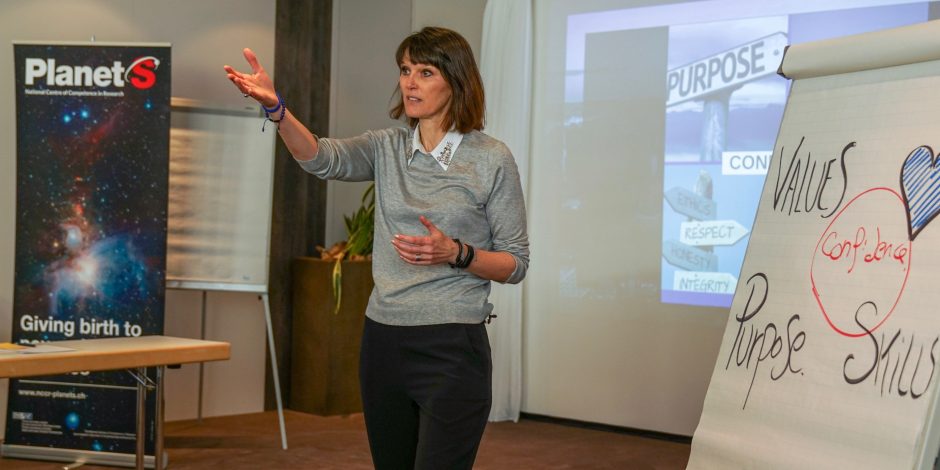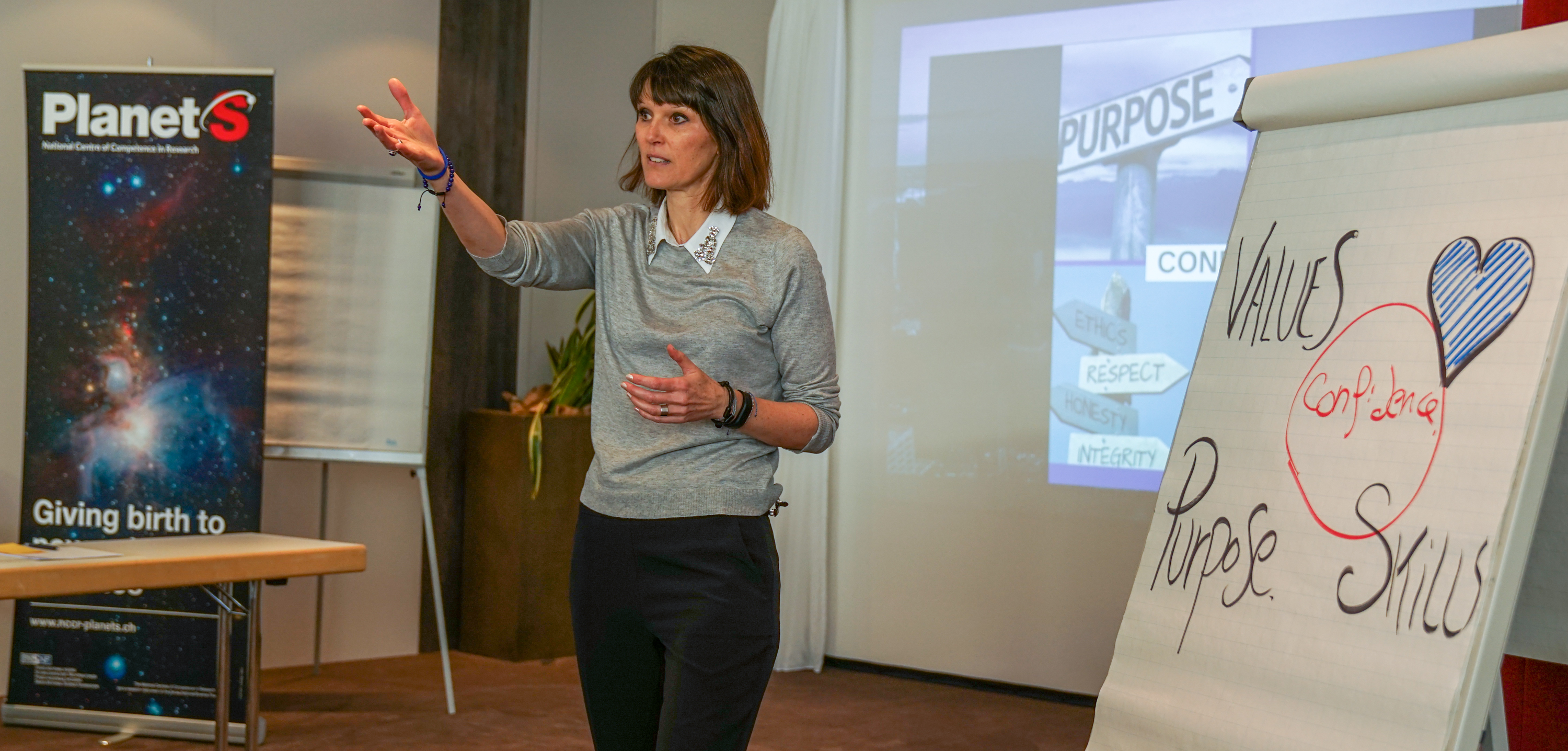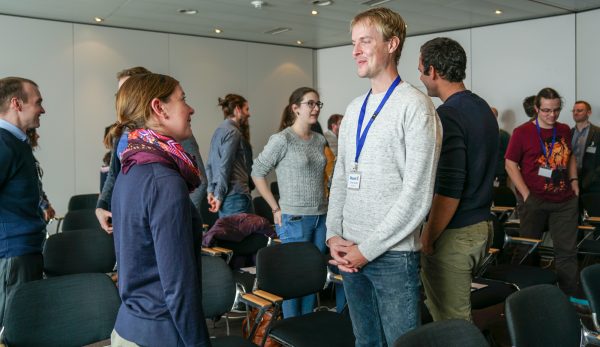“Prepare and practice with passion”

Cécile Bastien Remy calls herself “Public Speaking Jedi – Trainer – Speaker”. At the 5th General Assembly of PlanetS she was invited to give a workshop. “If you are not in a general mindset of giving to your audience, your audience will feel it,” Cécile Bastien Remy says.

Cécile Bastien Remy at the PlanetS General Assembly in Beatenberg. (Photo Sylviane Blum)
Nadine Afram, PlanetS: If you could only give one single advice on giving a presentation, what would it be?
Cécile Bastien Remy: Prepare and practice with passion!
What was the worst talk you ever attended and why?
Well, all my teachers at school did not inspire me, they were really bad presenters, except for my philosophy teacher. If you really want to hear a bad talk, go into a corporate meeting with no agenda. Some speakers can be self-centred, there are many elements of confusion, as it is not clear if they speak for themselves, or on behalf of their team or of the company they’re working for. The delivery message is not clear, because it is ill-prepared. Sometimes you may notice that there is arrogance instead of a reassuring confidence. The thing is, if you are not in a general mind-set of giving to your audience, your audience will feel it. Also, never assume who your audience is: go and ask them or find out who they are and what they want from you!
The other reasons why talks or communication can fail is the lack of focus. Very common in corporate culture. Many long meetings could be made efficient with rules/clear task ownership and managing speaking time per participants.
In a science talk, we have to show many plots or formulae or data. How would you create a story there?
Storytelling and science is a difficult topic. There is little space for stories in data. You should not tell a story but highlight the information by adding elements of storytelling (e.g. about the people in the research team). However, do not add too much story around your data, it will destroy your credibility. Instead you can be light in the transitions from one slide to the next. I read a rather well written article on the use of Story Telling in Scientific Presentations: https://www.presentation-guru.com/should-you-use-storytelling-in-scientific-presentations/

Exercise at the PlanetS General Assembly: 1 minute of exchanging compliments (not about the physical appearance). You had to accept the compliment by saying ‘thank you’ or nodding gratefully and gracefully. This was an exercise about self-esteem. How do you see yourself? Can you accept someone else’s strengths without feeling threatened, because you know your own worth? (Photo Sylviane Blum)
Is it possible to give a talk without power point?
As long as PowerPoint is being used as a crutch to a speaker, it will never be good to use slides as it can be a speaker/audience connection killer. However, the trend is that slides are becoming more and more minimalistic. If you can only show one information/element per slide and speak freely about it, and instead hand out the details on paper to the interested audience, that would be ideal. The Harvard Business Review has great templates (might even be free) to present numbers efficiently. Having said that, I would encourage everyone to try and give one presentation without using PowerPoint! So much fun.
For PhD students, what is the hardest challenge in your opinion?
To find time to prepare, and be confident!! I only train PhD students for the first 20 minutes of their thesis defence. Afterwards, it is purely their topic that matters. I also often see that PhD students get lost in the details. They forget the bigger picture. I am trying to have them summarise their thesis in one sentence with 15 words. What is your result? Why is it important? What can we do with it? Making it simple is very hard for them. The exercise of the first 20 minutes is to make science connects with a non-scientific audience. The simplification, without vulgarisation is challenging.
Is there a mistake many presenters make?
For the content: the biggest mistake is not to prepare enough.
On the delivery itself: When you are passionate or stressed, your pace of delivery can be too fast, and will not have pauses. This causes the audience to switch off. Pauses and silences are some of the most powerful tools to keep your audience engaged and make you sound like a confident speaker.
What is your overall image of our group? Are there many differences to the private industry when it comes to presenting?
A common factor is how intense you are with your topic matter. You are passionate about science (they are about their industry). The challenge that both, academics and bankers (for example), are facing, is to make your topic understandable, to build a bridge and to welcome others (be it your peers or others) to your world/your field of expertise. I love working with passionate and committed participants…the two workshop sessions delivered at the General Assembly were true gifts to me. Thank you all! I loved your passion, and your openness.

